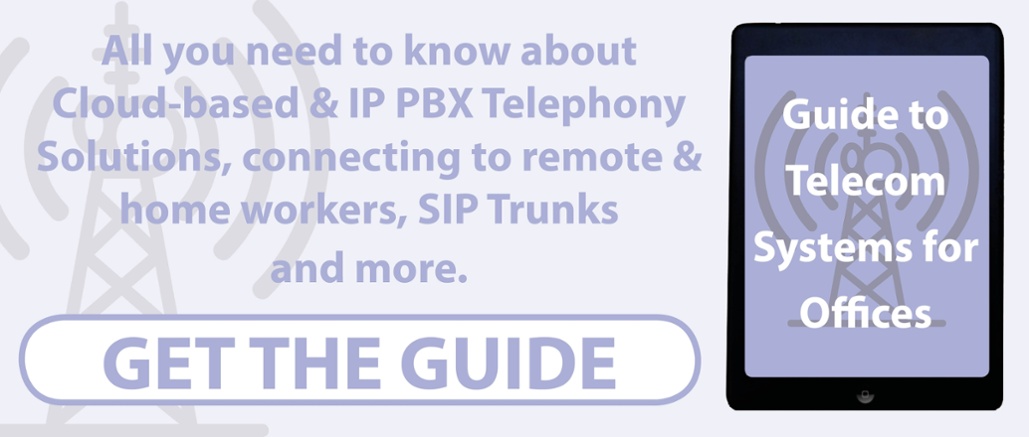
Staying on trend with call centre management means office managers must understand how to leverage the latest advances in call management technology.
Keeping in contact with customers when they want to access services and information is becoming ever more important in a business world that demands more and more 24-hour access. Even a decade or so ago, contacting an office would only be expected during normal working hours. Office managers might even find it reasonable to offer diminished contact capability at their busiest periods, for example when staff's lunch rotas started to come into effect from the middle of the day. The fact is that a net-savvy consumer simply demands more from their suppliers these days, whether they have a product query, want to book an appointment or are placing an order. Crucially, they demand the same high-level of service whether your business is large or small. It is part of the switched-on world where everything is available just when we want it, often at the touch of a button.
Business expectations have risen and – even when they want to communicate via a traditional voice call – clients expect a resolution with a greater level of immediacy than ever before. SME office managers who continue to run their operations as they always have, without innovation, will inevitably get left behind. What are the latest trends in contact centre technology that office managers should you be looking at implementing in 2018?
Call Recording Technology
Many larger businesses with dedicated contact centres use recording technology – it is nothing new. However, the technology has improved greatly in recent years and is becoming increasingly affordable for SMEs. In the past, it would be a challenge to find a conversation held weeks ago in order to resolve a contractual issue or to investigate a complaint. These days, digital recording systems are able to make searching for calls where certain key words have been mentioned child's play meaning that the technology has become practical for smaller enterprises. SME office managers can leverage modern call recording to focus your customer service training on certain themes by listening to calls that dealt with a number of different issues, such as up-selling, complaint resolution or redirecting calls to the next appropriate team, to name but three.
Smart Communications
More and more consumers choose to communicate in ways on their smart devices that don't incur call costs and which blur the boundary between voice and written communications. As such, one trend in 2018 that office managers need to consider is their company's ability to communicate via smart devices using things like instant messaging services, for instance. The ability to respond to WhatsApp messages is becoming ever more important for smaller businesses, but what about Facebook or MSN messenger, too? As users become increasingly used to using services like Skype and Facetime to handle their voice communications, so medium sized and even smaller companies will need to incorporate this sort of business telecoms offering in their set up. Soon, SME managers responsible for office communications will need to look at customer focussed video communications, as well, but that is probably a year or two down the line so far as most Oxfordshire, Berkshire and Buckinghamshire-based businesses are concerned.
Remote Working
These days, one of the enabling elements of business telecoms technology is that it need not be centralised at all. Why run your SME's contact centre from your main office with all of the infrastructure costs and overheads – water, heating, lighting and so on – when you can utilise modern business practices? Office-based staff can do their jobs perfectly well from the comfort of their own homes. Today's contact centre software still allows office managers to keep an eye on what is going on and who is performing throughout the day even though they are not in the same building as one another. Remote working set-ups offer staff a great deal of flexibility, as well. Implementing this approach tends to make staff recruitment and retention a great deal better – something that constitutes a considerable business cost, especially for smaller enterprises which don't have dedicated HR teams to call upon.
Customer Relationship Management
In the past, customer relationship management (CRM) systems were the preserve of big businesses. Banks and large insurance firms were among the first businesses to be able to respond to inbound calls seemingly knowing who was calling them. These days, all sorts of call centres use these systems so that staff can answer calls in a personalised manner which puts clients at ease and helps them to start handling the enquiry on the right footing. Any large call centre manager would tell the average SME office manager that such technology is equally suited to smaller businesses, if they were being candid. CRM packages can be purchased in cost-effective ways by smaller companies with further licenses being issued to use the system as demand for it grows. Why answer inbound calls asking who it is and what they want, when a fully implemented CRM system can establish this for you even before the call is picked up?





